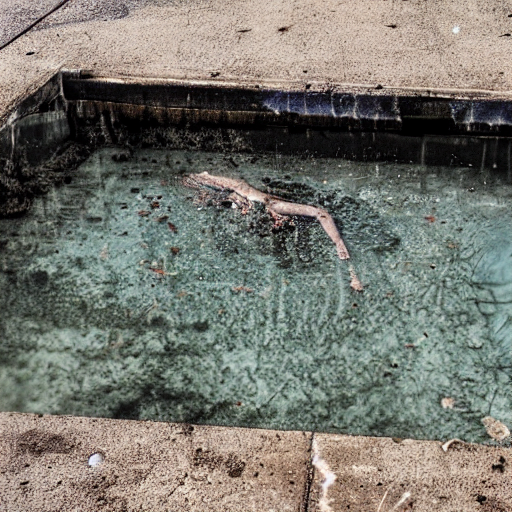Hatred is the opposite of courage.
Love is the opposite of fear.
Roger Rogerson is dead. I never spoke to him but it feels like we go back a way. Not a good way. He murdered the partner of someone I knew. When he was pointed out to me in a Paddington pub I turned and walked away. Some folk should remain strangers.
A lot of people must have breathed a sigh of relief when Rogerson died. A lot of secrets died with him. Tales he could have told. Names he could have named. But through his long journey from NSW’s most celebrated cop to disgrace and a murder conviction Rogoe kept mum.
When his close friend and equally corrupt colleague, Aarne Tees, was dying of cancer in 2002 he gave his wife a list of people he’d framed during his career as a detective. Mrs Tees contacted them to beg forgiveness for Aarne’s sins. Presumably they didn’t want Aarne to go to his maker with outstanding issues.
The Dodger obviously had no such qualms.
Right now a group of Australians of Croatian descent are again trying to have their 1981 wrongful convictions for conspiracy to commit terrorism overturned. They are among the many innocent victims of Roger Rogerson and the bent NSW legal system.
Life is not a race.
Nor is it a journey, a battle, an adventure, a trial or a story.
It’s not even a piece of shit.
Life is a dance.
May the world be your mosh pit.
I have trouble distinguishing diplomacy from hypocrisy. So I try to avoid both.
Things don’t happen to me.
Things that happen are me.

Sometimes I feel I’ve been written by Ballard.
I don’t abide in the world, but in my own contemplation of it.
Contemplating individuals, compassion arises.
I see only myself under alternate conditions.
Contemplating crowds, alienation arises.
Confounded by inexplicability and inhumanity.
Auto-marooned in careening existence.
Family, friends, colleagues:
They pick you up when you fall; drag you down when you fly.
When things go badly I have the pleasure of being right.
When they go well I have the pleasure of being wrong.
In front of me is a loaf of wholemeal bread in a plastic bag. Prominent on the packaging is text reading “THIS BAG IS 100% RECYCLABLE“. Beneath it, in much finer print, it says “through your local Coles”. (Coles is one of the two corporations that constitute Australia’s supermarket duopoly.)
What the fine print should say is “… in regions with functional recycling programs (i.e. not Australia)”.
The supermarket-instigated REDcycle soft plastic ‘recycling’ system collapsed about a month ago – as I predicted from its outset. Our economic system doesn’t generate sufficient demand to re-use the products of soft plastic recycling, so the expense of running a program that produces ever-growing mountains of useless plastic has been steadily increasing. When its costs exceeded its estimated greenwash PR value it was shut down. Such is capitalism.
Even before the demise of REDcycle the label was misleading. Most people don’t read “100% RECYCLABLE” as meaning “processed into pellets that will be stored in waste heaps until it’s time to dump them in landfill”. Worse is that the fine print about taking the bag back to a Coles outlet is very easy to miss. Many would have assumed ‘RECYCLABLE’ means it’s OK to put it in the yellow recycling bin that feeds into another unsustainable and inefficient program which can only deal with hard plastics. Throwing plastic bags into those bins merely ensures more loads will be designated as too contaminated for processing and also dumped in landfill – which is where most of it already ends up.
But the thin membrane of petrochemical waste containing my bread – destined to add another quantum of pollution to our already failing ecosystems – is emblematic of a far greater truth that should concern us all.
There is no role whatsoever for profit making entities in mitigating the catastrophic consequences of end-stage capitalism. They are its tools, not ours.
Where they can’t be bypassed they must be destroyed. The fate of this civilisation and the billions who rely on it for basic sustenance depends on it. The stakes may even be as high as the survival of the human race and a large proportion of vertebrate life-forms.
It’s time to stop fucking around with PR facades and get serious with the underlying structural issues.
Capitalism is not our friend and saviour. It’s an out-of-control paperclip maximiser. Like a malignant cancer its prime directive is infinite growth in a finite environment.
It’s us or it.
_________________________________________________________________________________________________________
Postscript 5, December, 2022:
“We live in a world that is being pillaged by the institutions of global capitalism to enrich the few at the expense of the many. And it is more than just a political issue because of the burdens that it places on our environment; the stresses being placed on our social systems. We have reached a point in human history at which the very survival of civilization and perhaps even of our species depends on replacing the rogue institutions of capitalism with institutions supportive of democracy, market economies, and ethical cultures that function in service to life and community. Yes, your heard me right. We must replace the global capitalist system with democracies and market economies. Now how’s that for a radical idea?
For those of us who grew up believing that capitalism is the foundation of democracy, market freedom, and the good life, it has been a rude awakening to realize that under capitalism, democracy is for sale to the highest bidder, the market is centrally planned by global mega-corporations larger than most countries, the elimination of jobs and livelihoods is rewarded as an economic virtue, and the destruction of nature and life to make money for the already rich is viewed as progress. Let us speak truth tonight. Global capitalism is not democratic and it systematically violates every principle of a market economy. Which sets up an interesting juxtaposition because it points to the possibility that there really is an alternative.
Under global capitalism the world is ruled by a global financial casino staffed by faceless bankers, money managers, and hedge fund speculators who operate with a herd mentality that sends exchange rates and stock prices into wild gyrations unrelated to any underlying economic reality. With reckless abandon they make and break national economies, buy and sell corporations, and hire and fire corporate CEOs (the heads of corporations) — holding the most powerful politicians and corporate managers hostage to the speculators interests. When their bets pay off they claim the winnings as their own. When they lose, they run to governments and public institutions to make up their losses with cries that the financial skies will fall if they are forced to suffer the market’s discipline.
Contrary to its claims, capitalism’s relationship to democracy and to the market economy is much the same as the relationship of a cancer to the body whose life energies it expropriates. Cancer is a pathology that occurs when otherwise healthy cells forget that they are part of the body and begin to pursue their own unlimited growth without regard to the consequences for the whole. The growth of the cancerous cells deprives the healthy cells of nourishment and ultimately kills both the body and itself. Capitalism is doing much the same to the societies that it infests.”
– from ‘Life After Capitalism‘ by David C Korten, November 1998 (i.e. a decade before the GFC).
I first read the above passage a few minutes ago.
I’ve never been under the illusion I’m an original thinker, but it’s a bit dispiriting to realise people have been raising the same alarms as I for a quarter of a century as the juggernaut continues implacably towards the cliff edge.
______________________________________________________________________________________________
Postscript 24 December, 2022:
Well, it turns out REDcycle has been illegally stockpiling soft plastics – often in unsafe, fire-prone conditions – in warehouses across Melbourne for a long time. Their efforts have earned them a $165,000 fine from Victoria’s Environmental Protection Authority but I doubt that makes much of a dent in the profits the operators made while pretending to recycle plastic. The program was funded by supermarkets so the cost was doubtless passed on to shoppers.
Perhaps even more toxic than the effect end stage capitalism has on the environment is the effect it has on what Eva Cox calls ‘social capital‘ – the trust, goodwill, consideration and sense of shared effort and outcomes that makes a society happy, healthy, supportive and sustainable.
What REDcycle did was monetise the concern Australian consumers have about their plastic waste footprint and willingness to make at least some effort to minimise it. They then betrayed the participants and walked away with much of the money they made by temporarily salving the conscience of consumers and reducing pressure on retailers to cut the amount of plastic packaging they use. Many people taken in by the scheme will now be less willing to put a bit of effort into other initiatives to reduce their negative environmental impacts. The goodwill of the many who took their plastic bags back to the supermarket was cashed out by the few who operated a bogus recycling scheme and a little bit of trust has disappeared forever from Australian society.
The destruction of social capital for profits for the few has always been a part of capitalism. Think multi-level marketing schemes like Amway in which people monetise their relationships with friends and family for the tiny chance of being one of the few who get to profit from what’s essentially a legal Ponzi scheme. But now, in the dying days of rampant capitalism, almost everything that can be thrown into the maw of the beast to keep it churning out consumerist junk is being destroyed for the sake of increasingly ephemeral economic growth. We’re turning the glue that holds our communities together into tacky doodads.
Tomorrow is Christmas. The streets of my suburb are festooned with tasteless tinseled trash that will be landfill in a week or two. People call it ‘festive’. As well as being a festival of consumerism, Christmas is the peak season for domestic violence, suicide, alcohol fueled accidents and admissions to psychiatric wards.
Happy birthday Jesus.
